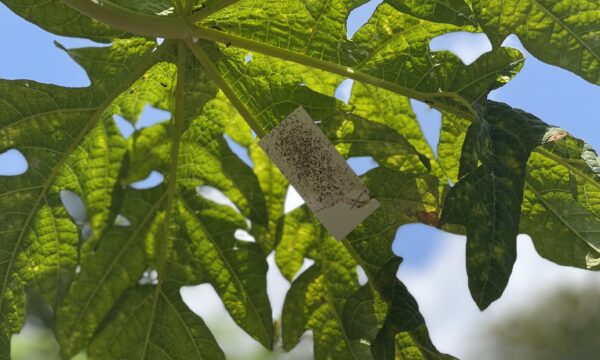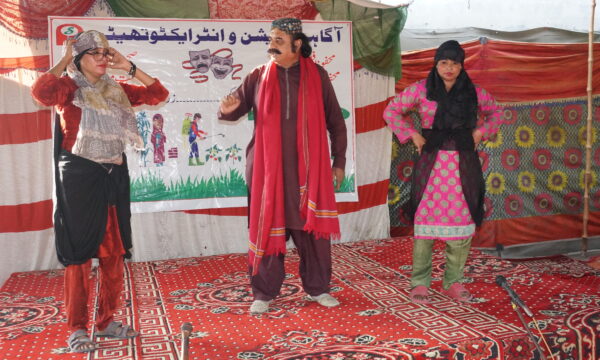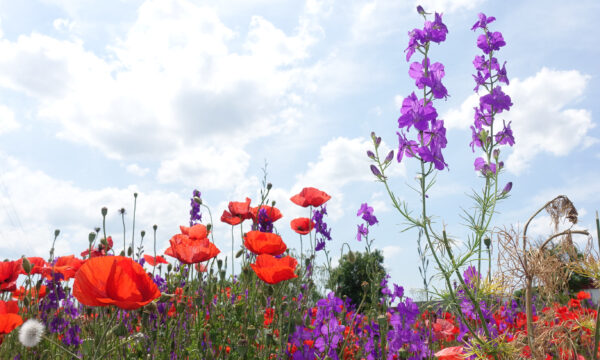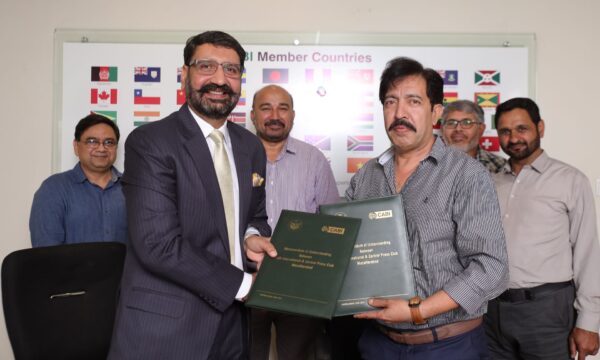Bread wheat (Triticum aestivum) is a globally important crop that accounts for 20% of the calories consumed by the world’s human population. Major work is underway to increase wheat production by expanding knowledge of the wheat genome and analysing key traits, however due to the large size and great complexity of the bread wheat genome progress has been slow. Now scientists from a number of organisations including the Centre for Genome Research at the University of Liverpool, the University of Bristol, University of California and the US Department of Agriculture’s Agricultural Research service have been working to sequence the genome and identify several classes of genes involved in crop productivity. The analysis provides a resource for improving this major crop by identifying variation in useful traits such as yield and nutrient content, thereby contributing to sustainable increases in wheat production.

Wheat (Triticum aestivum), one of the world’s most important food crops © David Monniaux via Wikimedia Commons (License CC-BY-SA 3.0)
Bread wheat cultivation can be traced back to the beginnings of agriculture and settled societies, and it is now one of the most widely cultivated crops due to its high yields and nutritional value. Bread wheat has a global production of 681 million tonnes (2011) and is an important source of proteins, vitamins and minerals. The international team of scientists completed a shotgun sequence of the wheat genome, which essentially involves breaking the large and complex genome into smaller segments for analysis before piecing them together. The project involved sequencing up to 9600 individual genes of Chinese Spring wheat. The bread wheat genome is especially complex because bread wheat originated from three grass species, and is therefore a composite of three genomes. Completion of a high-quality complete sequence of the bread wheat genome is a few years away, and requires the collaboration of experts across the world to accomplish.
“This work moves us one step closer to a comprehensive and highly detailed genome sequence for bread wheat, which along with rice and maize is one of the three pillars on which the global food supply rests” said one of the study authors Jan Dvorak, Professor of Plant Sciences at the University of California, Davis. With the world’s human population predicted to grow from 7 billion to 9 billion by 2050 there is an urgent requirement for improved higher yielding varieties of cereals that are better able to withstand plant pests, diseases and changing climate. The results of this study and many others like it provides vital information about the DNA making up wheat genes, information which can then be utilised by plant breeders link genes to key traits such as drought resistant and disease resistance in order to develop hardier varieties.
To read about more a CABI project related to wheat production and integrated pest management in Pakistan, visit here.
References:
Brenchley, R., Spannagl, M., Pfeifer, M., Barker, G., D’Amore, R., Allen, A., McKenzie, N., Kramer, M., Kerhornou, A., Bolser, D., Kay, S., Waite, D., Trick, M., Bancroft, I., Gu, Y., Huo, N., Luo, M., Sehgal, S., Gill, B., Kianian, S., Anderson, O., Kersey, P., Dvorak, J., McCombie, W., Hall, A., Mayer, K., Edwards, K., Bevan, M., & Hall, N. (2012). Analysis of the bread wheat genome using whole-genome shotgun sequencing Nature, 491 (7426), 705-710 DOI: 10.1038/nature11650
‘Taking A Slice at the Wheat Genome’, Elizabeth Pennisi, November 2012, Science
‘Shotgun’ Method Sorts Through Wheat Genome’, November 2012, UC Davis (US)
International Wheat Genome Sequencing Consortium
WheatGenome.info: An integrated database and portal for wheat genome information. Kaitao Lai, Paul J Berkman, Michal Tadeusz Lorenc, Christopher Duran, Lars Smits, Sahana Manoli, Jiri Stiller, David Edwards. Plant and Cell Physiology (2012) 53(2): e2.
1 Comment
Leave a Reply
Related News & Blogs
‘Sowing the seeds’ for food security in Uganda: CABI supports training for Quality Declared Seed production
CABI has been working with Zirobwe Agali-Awamu Agribusiness Training Association (ZAABTA), the Ministry of Agriculture, Animal Industry and Fisheries (MAAIF), the National Agricultural Research Organisation (NARO), and Integrated Seed Sector Developmen…
21 May 2025





[…] Slicing Into the Bread Wheat Genome by Charlotte Elston […]